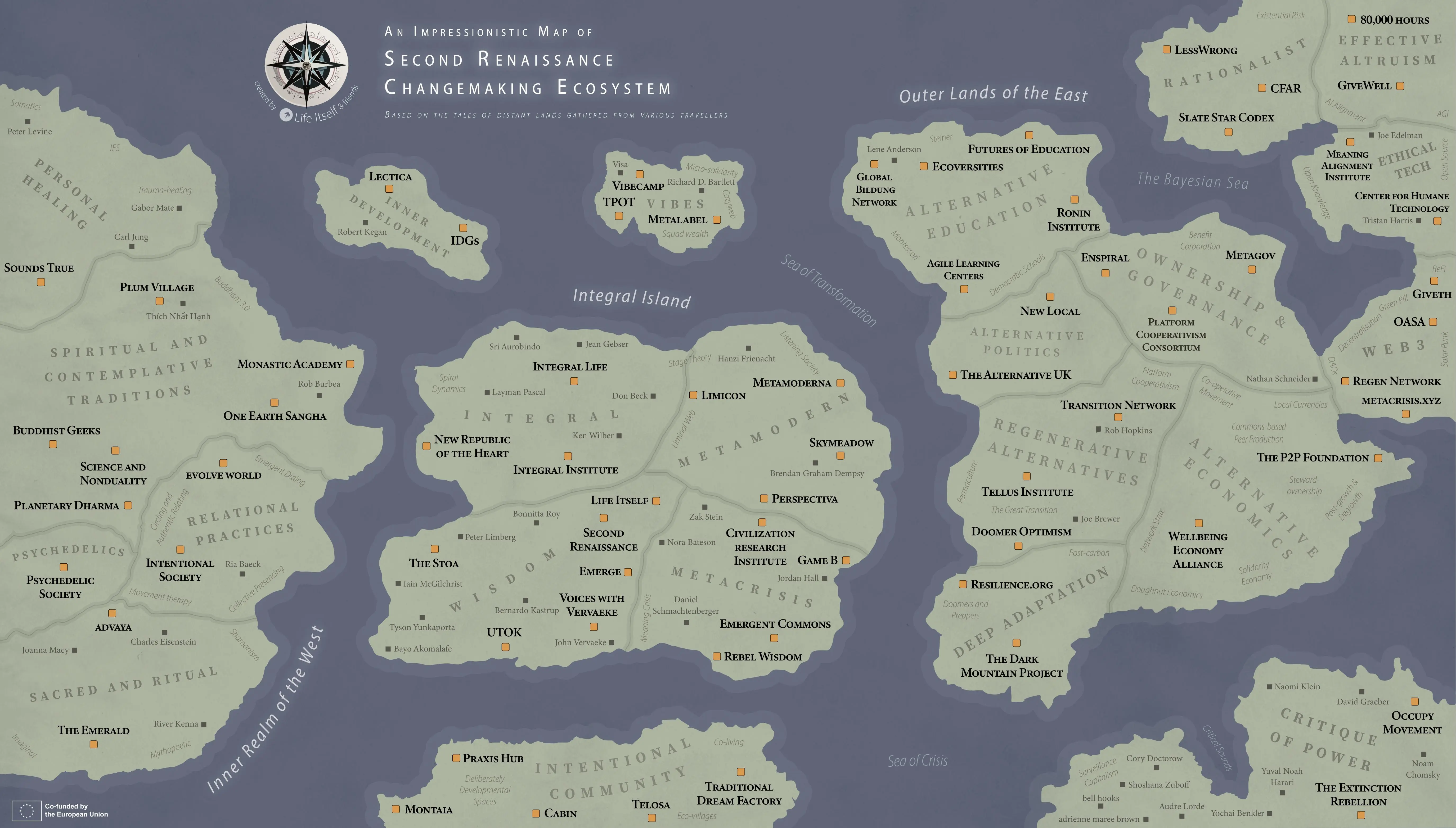A new ecosystem for social change is gaining traction
We are seeing a growing ecosystem of people and organisations who are recognising the need for a major civilisational transition from Modernity
to a new cultural paradigm. They are choosing alternative ways of living and working to support that shift.
We've been mapping it since 2019, and know others who have been mapping it too. We've profiled over 200 organisations who are part of it, and outlined some of the ecosystem's key characteristics.


The ecosystem has ripening potential to make a real difference
Change often happens on the margins. We think this ecosystem holds powerful knowledge and perspectives, which diverge from the mainstream and the progressive, on
what is needed in response to current crises – as well as practical experience and learnings in how to cultivate deep-rooted change.
Communities and individuals in the ecosystem have been innovating, combining, and experimenting with new processes, practices, theories, technologies, and infrastructures,
drawing from a wide range of bodies of knowledge – from ancient and traditional wisdom,
to contemporary science and technology.
But at the moment it is difficult to discover, engage with, and make sense of
The ecosystem is currently vague, complex, and sprawling. Some of the many names and terms associated with it are: Integral,
Metamodern, Regenerative, Metacrisis-aware, Liminal Web, Game B, and more.
While there is growing recognition around certain thinkers, practices, and physical and virtual gathering places, it is hard to make sense of the breadth and variety. For instance, it has no clear name, language, or identity. This
makes it hard to talk about, both within the ecosystem and especially to others outside it. This, in turn, makes effective and strategic collective action more difficult.
Mapping the Emerging Ecosystem
There may never be a clear, singular identity and direction for the ecosystem. However, we think that mapping supports greater understanding, interconnectedness, and coherence within the ecosystem, as well as greater visibility, accessibility, and credibility outside it.
Some of the questions currently animating our work are...
- What are the "boundaries" and "landmarks" of the space?
- How is the ecosystem situated in relation to other communities, fields, or movements?
- Where might there be tensions and disagreements underlying high-level commonalities?
- How do we help ourselves and others to get a grasp on something that is complex, broad, and still emerging, without unduly imposing reductionist definitions?
Key Resources
Essential resources for exploring and making sense of the emerging Second Renaissance ecosystem
-
An overview of the most widely used names and terms for the ecosystem: meaning, history, and associated thinkers, perspectives, and communities.
-
What other efforts have been made to map who/what is part of the Second Renaissance ecosystem? Acknowledging related efforts by our peers not only to map the ecosystem itself but also to "map the mappers".
-
A Wiki covering key concepts, people and organisations in the Second Renaissance ecosystem.
Our Mapping Projects
We've been mapping the ecosystem since 2019. We've created directories of organisations who are part of it, outlined some key characteristics, and created visual maps.
-
Directory & visualisations of organisations taking "paradigmatic, integrative, and pragmatic" approaches to social change
-
A report outlining trends and buzzwords in the space & diagram of organisations grouped by core activities



